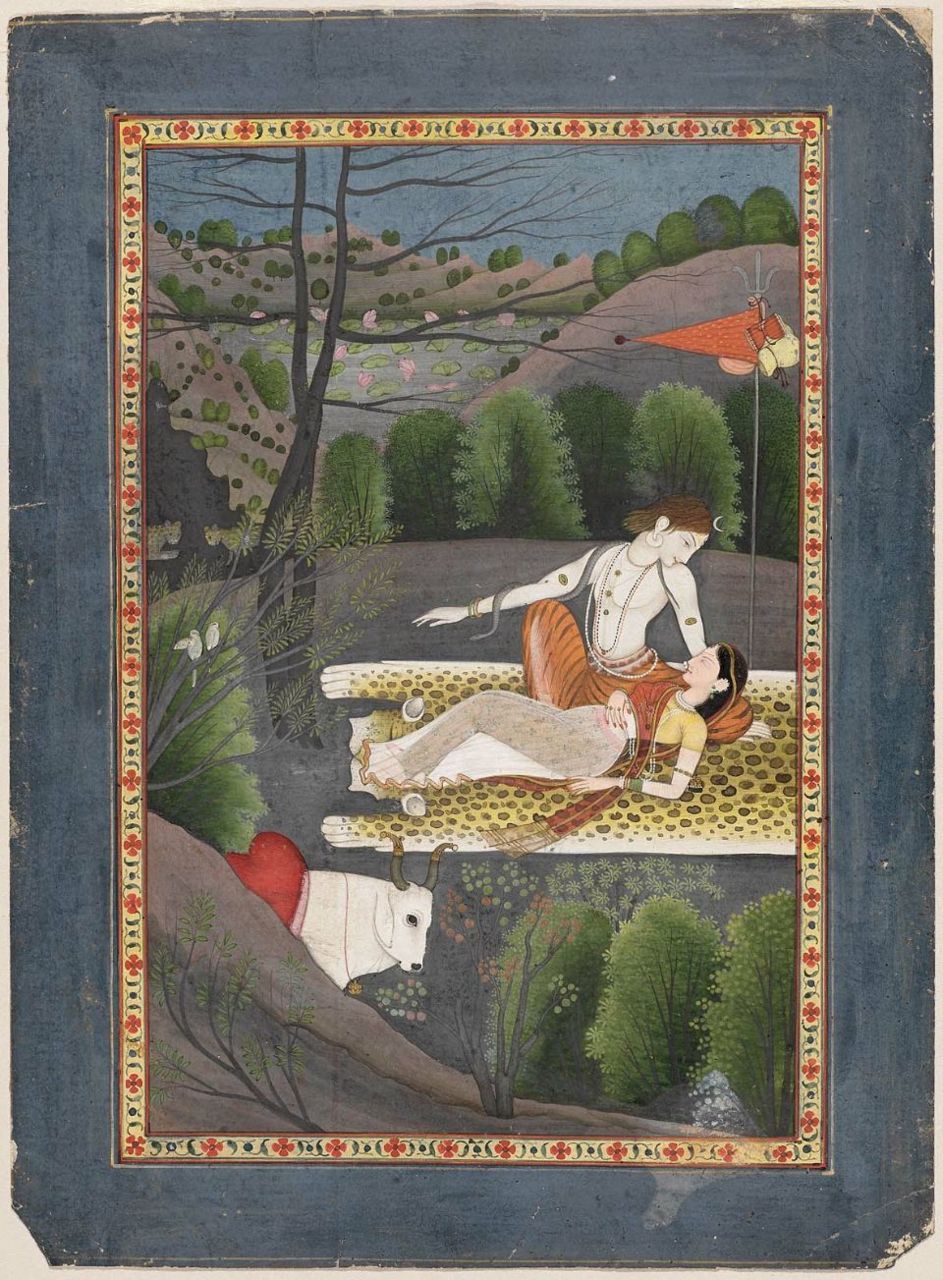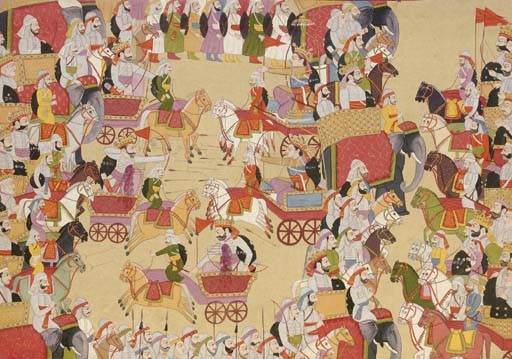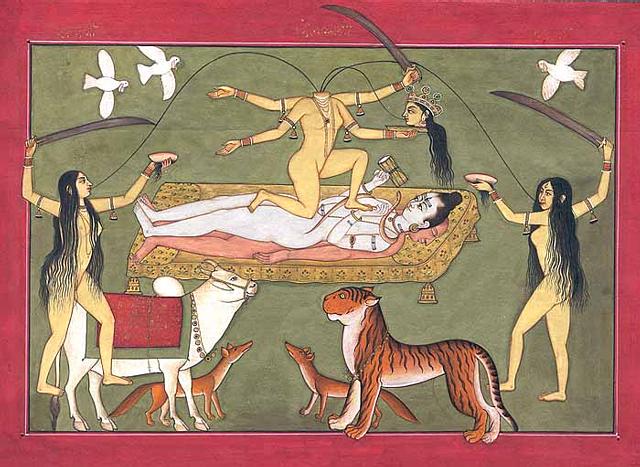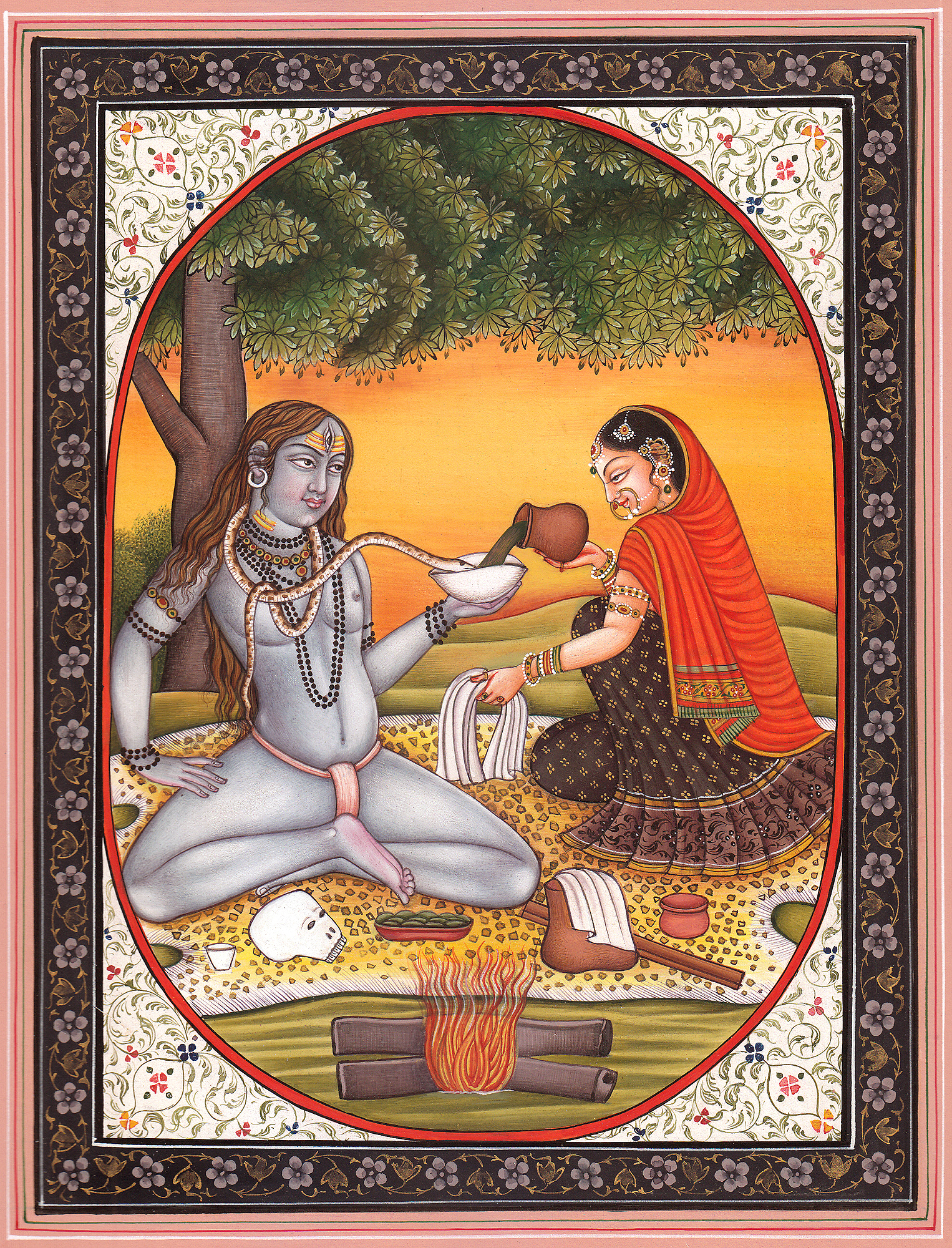Sceptics
question everyone and everything. That's a good thing to do. Humans as a
species owe a lot to the work of sceptics - who dared question the
unquestionable, and led us to break not only the barriers of human knowledge,
but also the chains of slavery and discrimination.
But soon
enough I noticed a common theme running in all these sources. Almost all of
them had some degree of distaste for not only religion, but also serious (and
unexplained) objections to Mythology and Stories.
Being an
avid fan of storytelling and mythology myself, and a feminist and rationalist
to boot, I was deeply concerned with this undercurrent of anti-narrativium
among my fellow sceptics. And that's why I decided to write this.
Stories
& Mythology - the What and the Why
Human
senses are not what we would call perfect. Even beyond the physical limitations
of the organs involved, human senses are highly discriminatory. For example, we
possess the ability to focus on a single conversation even in the midst of a
noisy crowd. Our brain naturally edits a lot of recurring sensory information -
e.g. the sounds of our bones as we are walking, and fills in a lot of absent
information e.g. optical illusions regarding light and shade. In addition to
all this, we can be trained - consciously or unconsciously and to ignore
certain stimuli or see/hear things that are not there. Simply put, human senses
are not completely objective.
Human
memory is also very different from say a computer hard-drive memory. Its
primary function is not the recording of the facts or phenomena themselves, but
our physical and emotional response to and the respective consequences of said
phenomena. It is precisely because human memory is thus imperfect that newsmen
use the word 'report' or 'story' as opposed to 'fact' or 'truth' to describe a
news item. This is also why the scientific method relies on reproducibility of
research/experiments.
Ponder on
the ramifications of this for a minute. We do not see or hear objectively. When
we narrate our experiences, it is always coloured by our own biases, not to
mention the imperfection of our memory. The recipient of our narrative - our
audience, so to speak, is also biased - and will see and hear what they like,
not what we tell them. It takes several iterations (and by multiple persons) of
observation, recording, and discussion to arrive at the objective truth. It is
why the cornerstone of even modern Science and Engineering is the
Approximation Theory.
It is this
lack of objectivity that gives rise to a form of communication called 'Story'.
A story is a structured description of events, real or imaginary. However it is
essential to note that any story, no matter how fictional, is never a lie.
A story is
an attempt to understand and depict a truth. This truth may be mundane or
profound, objective or subjective, local or universal. Storytelling therefore
belongs to the same class of intellectual exercises as a scientific hypothesis
or a scholarly article. Needless to say, a story can have other functions also
e.g. entertainment and social engineering. But without a shadow of doubt,
storytelling was the first attempt at an intellectual exercise by human beings.
Just as the
entire body of scientific knowledge is composed of scientific hypotheses, laws
and theories and the techniques and experiments associated with them, the body
of stories endemic to a particular group or culture is known as a Mythology.
For example, Norse Mythology is the collection of stories endemic to people of
Scandinavian origin. Again, a mythology may or may not be explicitly connected
to Religion. For example a Comic Book Universe such as the DC Universe or the
Marvel Universe is an example of modern, secular mythology.
'Sacred'
Stories and the problems with Religious Mythology
Stories are
born out of both observation and imagination. Even the most esoteric
narratives, such as James Joyce's Ulysses, have a basis in reality.
Modern mythologies such as the Harry Potter 'Verse are equal parts wish
fulfilment and speculation about the nature of human relationships and power
dynamics. Likewise, the most faithful narrations of historical events will have
gaps filled in by conjecture and speculation.
Even the
most die hard sceptic and rationalist will have no trouble with most such
stories. They acknowledge the utility of imagination in all walks of life, and
the value of allegory and
applicability
as form of communicating timeless ideals. What they do have trouble accepting,
is the concept of 'Sacred' Stories.
A 'sacred'
story is a part of the mythology (religious or secular) which is accepted as
being 'canon' i.e. official and true by the fans of that mythology. e.g. In the
Sherlock Holmes mythology, Sir Arthur Conan Doyle's stories are obviously
canon, but the various film and TV adaptations are also considered canon. In
the case of religious mythology, 'sacred' stories are usually collected into
what eventually becomes the scripture.
The
problems with 'sacred stories' go beyond just the obvious.
1.
For starters, when the people of a culture
elevate a story to the status of 'sacred' they inevitably end up discounting
the 'imaginary' part of the story, i.e. they start insisting that the story is
100% observation, and not the mix of observation and imagination that it
actually is. This can happen with non-religious stories also - see
Literary
Agent Hypothesis.
2.
Sometimes even if they acknowledge that the
story is not literally true, they are divided as to whether it has allegory or
applicability. This makes a big difference.
a.
A story with allegory has only one correct
meaning - the one intended by its author. It is meant to be prescriptive. This
is problematic because such stories are frequently highly ambiguous, and it is
humanly impossible for us to figure out what the author really meant -
especially if the author is dead or unknown (or God forbid, God Himself).
b.
A story with applicability does not necessarily
have a meaning. It is simply meant to provoke thought on a topic. (Dr. Devdutt
Pattanaik calls such stories 'Reflective'). This is would be unproblematic, if
people actually accepted that their 'sacred' stories were applicable and not
allegorical.
3.
Also, as said before, a story is an attempt to
understand and depict a truth. But is the truth behind a 'sacred' story
objective or subjective? Is it specific to a time and place, or universal?
Mundane or Profound? These are difficult questions.
4.
And then you have something call the
Moff's Law,
which may be summarized as (paraphrasing Howard Taylor):
It's not
over-analysis when every stray thought about the story has to be quashed lest
you realize how stupid the story is.
When
applied to 'sacred' stories, Moff's Law states that the biases of the narrator
of such stories are sometimes so glaringly obvious, that they cannot be overlooked while figuring out the true message of the story.
Why
'sacred' stories can't be dismissed as superstition
So I
totally understand if sceptics have trouble with 'sacred' stories and
especially religious ones. But the question is, are we throwing out the baby
with the bathwater when we ignore or denounce these 'sacred' stories?
Most
'sacred' stories predate the invention of writing, or are primarily preserved
through the oral tradition. This makes them especially prone to mutation over
the generations. However, when a story is designated 'sacred', special efforts
are made to preserve it in its original form, which ensures that the
prescriptions and/or reflections in the story are also preserved. And sometimes
these values are timeless and universal. Thus to dismiss such stories as mere
fantasy could and would rob us of the wisdom of our ancients.
As Dr.
Devdutt Pattanaik says, "Myths are the concentrated fruit of the fears,
despairs, hopes of our ancestors. When we denounce our myths we denounce our
ancestors."
Another
oft-ignored fact is that just like any other organization, countries and
communities need a Vision, Mission and Value statement. And more often than
not, 'sacred' stories provide these vision, mission and values. For example, the
narrative of 'Thanksgiving' in the USA tells the story of the original
passengers of the ship Mayflower and their interactions with the Native
Americans. Granted, it is more of a mythical narrative than a historical one,
but it nevertheless defines the values of thrift and enterprise that form the
very fabric of American culture.
For those
who argue that 'sacred' stories bring a lot unnecessary religious baggage,
consider this, that even the most neutral of documents, e.g. the Constitution
of India require a sort of religious devotion in order to function. As Indians
it is our sworn duty to uphold our Constitution. That essentially makes Indian
Nationalism our religion (हिंदी है हम वतन है), the Preamble our 'covenant' and the Constitution our 'sacred' story.
Indeed, for
the better or the worse, humans aren't rational creatures. We never have been.
As Dr Prabhakar Kamath warns in his article "A Rational Approach to the
Problem of Obsessive Compulsive Religion":
While
attempting to reform society, all rationalist must keep in mind the dictum that
all solutions for societal problems, no matter how noble their original intents
were, become problems themselves sooner or later. This is especially true in
India. Don’t be surprised that someday in the future Rationalism will become a
religion riddled with gods and mindless rituals! People bring into
organizations their own unconscious beliefs and behaviors rooted in them and
destroy the original goals of the organization.
The
Solution
With the
rise of highly popular secular mythologies like the various Science Fiction,
Fantasy, and Manga and Comic book universes, we are able to observe at first
hand the phenomena of myth-making, the behaviour of fan-bases and the effect of
fan-fiction on canonical stories.
It would
not be inaccurate to use this data to approximate the circumstances of the
birth and evolution of the world's most ancient and enduring 'sacred'
mythologies. Indeed, the most important inference that can be drawn from the
observation of contemporary mythologies is that myth-making is not inherently
inimical to rationality. If anything, they are complementary.
This is
amply demonstrated by the fact that religious stories almost always
outlive the religions that they were
born in. Nobody worships Thor or Anubis or Astarte anymore. But the stories of
these old Gods still survive. They still make millions at the box office. And
yet we as a generation represent the pinnacle of the triumphs of Science and
Rationality.
So I say
don't throw away the old stories, no matter what kind of religious/political
baggage that they are encumbered with. Keep the baby and the bathwater.
Keep the baby and nurture it, so it may grow and add to your wisdom. Use that
bathwater to cleanse your mind of prejudices.
Epilogue
In writing
this article, I also had a secondary motivation, viz. to codify the fundamental
properties of stories and storytelling, not unlike
Joseph
Campbell's 10 Commandments of Reading Myth. So here's my attempt at the
Fundamental laws of Storytelling:
1.
Humans are narrativistic creatures
·
We always think in stories. We are
Pan narrans, the storytelling ape.
2.
A story may be fictional but never a lie
·
It is always an attempt to understand and depict
a truth. This truth may be mundane or profound, objective or subjective, local
or universal.
3.
All stories are ultimately the property of their
audience
4.
All stories are inherently mutable, and never
static
·
Even if the text stays the same, because the
story changes the audience, so that when they hear it again, they are not the
same people who heard it the first time
5.
All stories have utility
·
either to their author, or to their audience, or
both
Further
reading
I strongly
recommend the complete works of Sir Terry Pratchett and Neil Gaiman, especially
the latter's
Sandman comics. And no mythology aficionado worth her salt
can go without reading Dr. Devdutt Pattanaik's blog
www.devdutt.com. For a bibliography of
selected passages and articles see
here.





